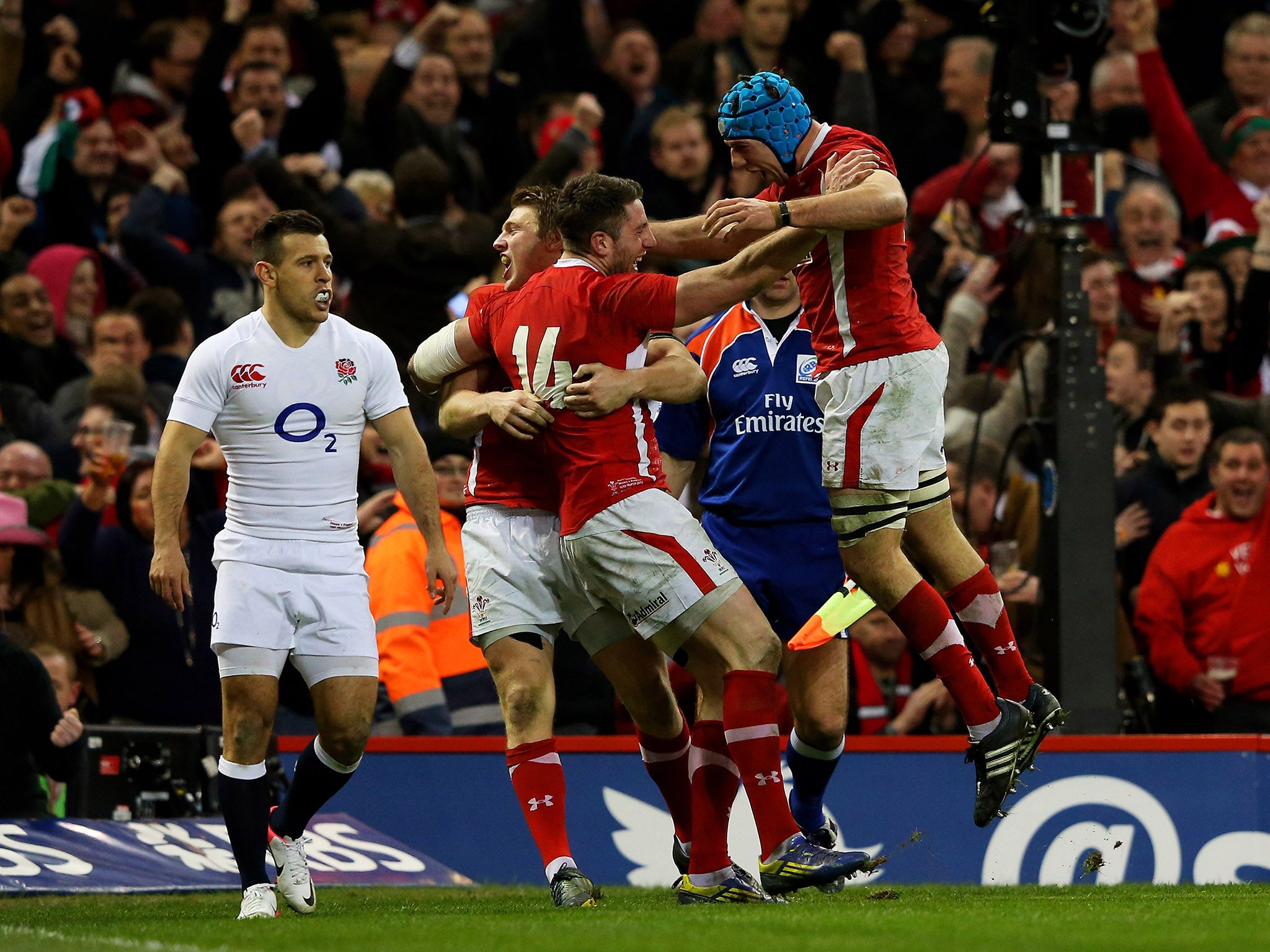Six Nations 2015: Grandest stage in Europe set for passion play in Cardiff
As the years go by, that red-rose vintage stands out as the finest seen in a white shirt

Blame the World Cup organisers. Without them, Friday night’s sell-out Six Nations launch party at the Millennium Stadium would have been a simple, straightforward set-to between Wales and England: fiery, feverish, fractious and furious, steeped in ancient rivalry and weighed down by the memory of insults and indignities real and imagined ... but nothing more than that.
The reality of this year’s cross-Severn contest – and, indeed, the 15-match championship as a whole – is very different, thanks to the proximity of the eighth global tournament, which will unfold on these shores in early autumn, and the decision to hold the draw almost three years in advance. Wales may be a top-six team right now, but back in December 2012 they were outside the top eight of the rankings and therefore a “rogue” element as the balls were plucked from the bags and the pools were put together. And wouldn’t you just know it, they fell with an almighty splat smack into the middle of England’s group. And Australia’s. With only two places available for progress into the knockout stages, someone good is going to fail big time in September.
Three other Six Nations sides – Ireland, France and Italy – were also lumped together in a European-dominated World Cup pool, but unless the Azzurri make serious strides between this weekend and the middle of March, the chances of them troubling their elders and betters will seem remote at best. In the popular imagination, the bigger picture is dominated by events in Cardiff on opening night.
But the Six Nations picture is quite big enough to be judged on its own terms. For one thing, it is far and away the grandest annual tournament in the sport: whatever those involved in the southern hemisphere Rugby Championship may claim to the contrary, they envy the hell out of the much older, infinitely more captivating northern version. For another, what happens before a World Cup usually has very little to do with what happens during it.
It is true that, back in the day, the best-performing sides in the old Five Nations tended to carry their form on to the global stage. France won a Grand Slam in 1987 before reaching the final of the inaugural World Cup; England did likewise four years later. But in the professional era, a successful run in one competition has rarely generated the momentum necessary to double up later in the year.
Scotland’s triumph in the last of the old Five Nations tournaments in 1999 did not help them move beyond the last eight of the ensuing global jamboree; France, who finished bottom, reached the final. New Zealand? They won Tri-Nations titles in ’99, ’03 and ’07 – and went on to mess up in the World Cup on each occasion. When the All Blacks finally reclaimed the title in 2011, almost a quarter of a century after strolling to the first one, they did it shortly after ceding their southern hemisphere crown to the Wallabies.
In the modern age, only England spent a whole World Cup year as masters of all they surveyed, securing a Six Nations Grand Slam in 2003, then holding themselves together – just about – at global level a few months later. If that achievement was rare, so was the quality of Martin Johnson’s team. As the years go by, that red-rose vintage stands out ever more clearly as the finest ever seen in a white shirt – particularly up front, where it mattered most.
What we know about this year’s Six Nations is that it will be a top-of-the-bill event, in and of itself. There will not be the mother and father of a queue at the Severn Bridge toll on Friday night because the Wales-England game is a warm-up act for something bigger and better; the Scots and Irish will not be heading for Paris and Rome in their thousands because they fancy a change of weekend watering hole. All this will be happening because the wonderful old tournament – much altered, but still steeped in its traditions – is among the brightest threads in Europe’s sporting tapestry.
So who wins? A sound case can be made for three teams, maybe even four, but this much is certain: this Six Nations is more than a prelude to the World Cup. It is a rival.
Subscribe to Independent Premium to bookmark this article
Want to bookmark your favourite articles and stories to read or reference later? Start your Independent Premium subscription today.

Join our commenting forum
Join thought-provoking conversations, follow other Independent readers and see their replies